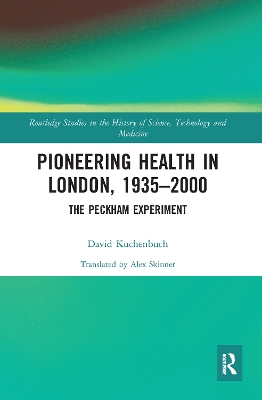Routledge Studies in the History of Science, Technology and Medicine
1 total work
The Peckham Experiment, conducted between 1935 and 1950 in the London Pioneer Health Centre, was one of the most talked-about social experiments of the 20th century. Families from the South London neighbourhood of Peckham were invited to use the facilities of a radiantly modern building. They were encouraged to freely choose and organize their leisure activities, taking advantage of a swimming pool, a gymnasium, and a self-service cafeteria. In doing so, both their health status and interaction with other members of the nascent centre-community were closely observed by a team of physicians.
The first research monograph on the history of the experiment building on archival sources, this book combines a micro-historical perspective with methods from the history of science. It shows how bio-medical holism and evolutionary theories typical of the interwar years informed research on social life in the centre. But it also reveals that the "guinea pigs", too, were trying to make sense of the research they were taking part in. The outcome was an ambiguous social laboratory that generated new insights into the power of social groups to self-organize, which were soon discussed all over the world - and continue to haunt British political debates today.
